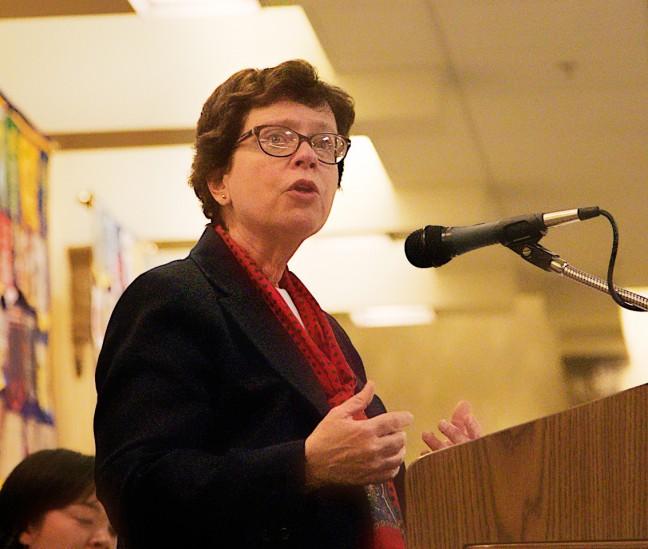Chancellor Rebecca Blank’s request to increase tuition for out-of-state and professional students has been met with mixed reviews.
While some think the change could hurt out-of-state and professional students, others argue the changes are necessary to fund the university and attract faculty.
In her State of the University speech Sept. 26, the chancellor asked the Board of Regents to expand the tuition revenue of the university by first increasing out-of-state and professional tuition to align with other universities.
Last year the Board of Regents lifted the cap on the percentage of out-of-state students allowed to enroll at UW and established a rule that at least 3,600 students in every incoming class must be from Wisconsin.
Currently, the University of Wisconsin is the seventh most expensive university in Big 10 for out-of-state undergraduates.
With increases in tuition, Blank argued the university will be able to increase compensation to staff through raises and bonuses to make the university more competitive, Blank said. Without fair compensation, the university could lose valuable teachers to other universities or the private sector.
“My primary goal is to pay faculty and staff competitive salaries, to offer one of the best educational programs at any public university, to support research and to make sure we have the facilities needed by a top-ranked research institution,” Blank said in her address.
Noel Radomski, director and associate researcher at the Wisconsin Center for the Advancement of Postsecondary Education, said the change may not be a large problem for UW because it will not impact the number of students enrolling. The number of out-of-state students applying is increasing so there will always be enough students, Radomski said.
But Associated Students of Madison spokesperson Jason Klein, an out-of-state UW student, said an increase in tuition will have a negative impact on out-of-state students. Klein said one of the largest problems for students today is paying for college.
“I know the university is struggling for funding, but I also think that they should do what they can to protect tuition,” Klein said.
Out-of-state and international students create much more revenue for the university than in-state students, Radomski said. This creates an incentive for the university to increase the number of students that pay increased tuition. By taking away the limit on the number of out-of-state and international students, the university can increase revenue while also keeping a strong base of Wisconsin students, Radomski said.
Klein, however, said UW will be a less attractive option for out-of-state students if tuition is increased. Many students come to UW because it is less expensive than other large universities.
“The university is between a rock and a hard place, because right now they are not getting what they need and raising tuition is one of the ways they can make up for what they don’t have,” Klein said.
The university needs to look at what kind of student population is best, Radomski said. Financially it is best to enroll out-of-state and international students because of their higher tuition rate, but as a state university, UW has an obligation to educate the citizens of Wisconsin.
UW also has to maintain high-quality education for all students. Radomski said professors and faculty members are the reason for UW’s high merit among state universities.
Radomski said the university needs to retain quality professors who require competitive compensation, which is now increasingly difficult due to cuts in state funding. The reason Chancellor Blank asked the Board of Regents to increase out-of-state tuition is to make up for the funding, Radomski said.
“Given the limited fiscal resources [state revenue], we need to be strategic because the number one priority is quality teachers,” Radomski said.
UW System could see a pay-per-credit tuition approach in future summer sessions
In the current budget, Radomski said the university did not ask for a pay increase for faculty. The main driver to a large university like UW is quality professors and they should be prioritized in the budget, Radomski said.
To attract students from all across the country, UW must also attract the highest quality professors, Radomski said.
Klein said his choice to come to UW was influenced by the school’s prestige and it was affordable for him and his family.
“I don’t envy the situation that they [UW] are in, but at the same time it is not very fun for me either,” Klein said.
A previous version of this article incorrectly spelled Jason Klein’s name as Klien. The Badger Herald regrets this error.














